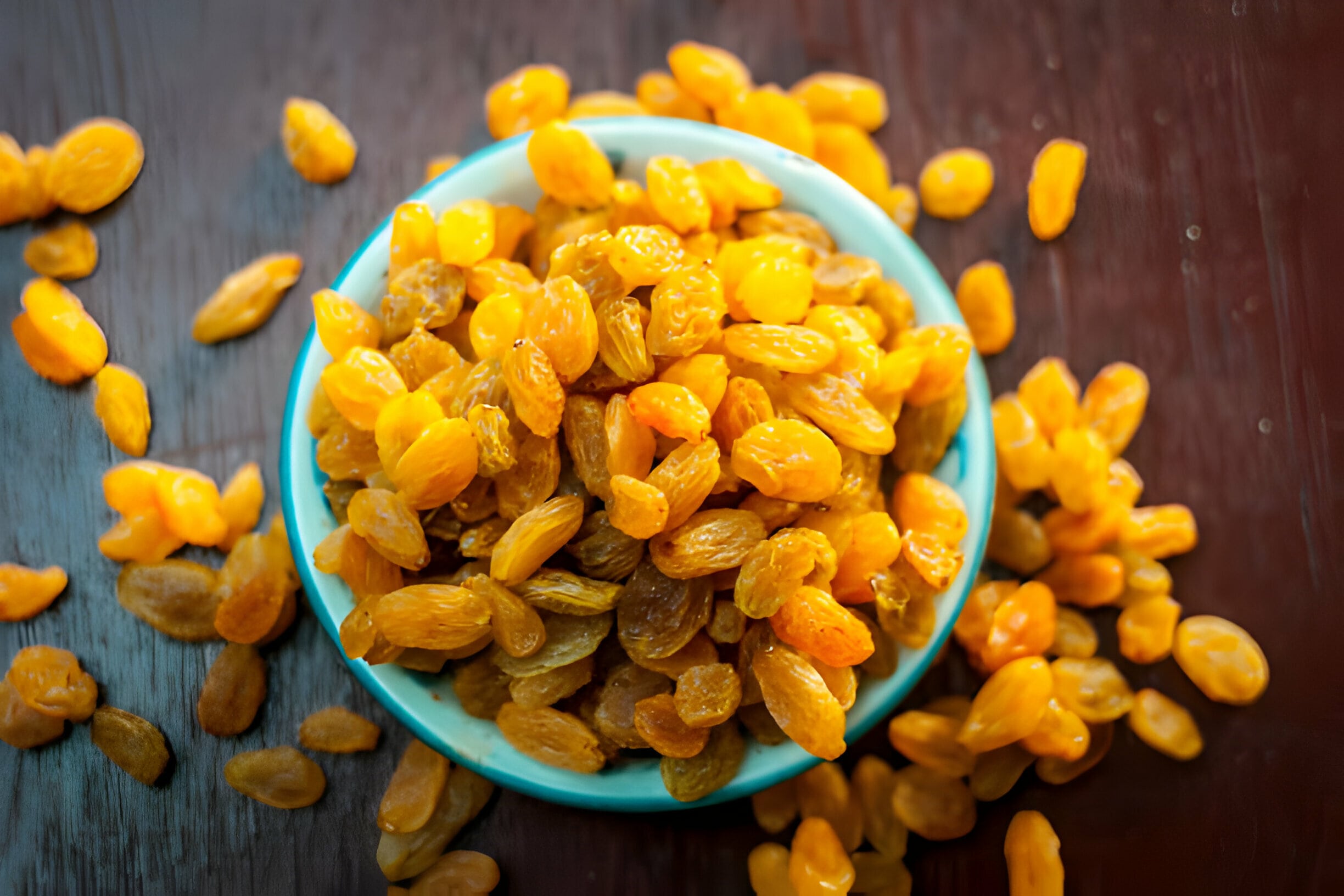Al Burraq
Kishmish: The Sweet Treat with Ancient Roots
Kishmish, commonly known in English as raisins, are dried grapes that have been enjoyed as a snack and culinary ingredient for thousands of years. From being a simple, sun-dried fruit consumed by travelers and warriors for a quick energy boost to becoming a beloved addition to various cuisines around the world, kishmish hold a special place in cultural and culinary history.
What is Kishmish?
The term 'kishmish' typically refers to small, seedless, and sweet raisins, often of the variety derived from the Sultanina grape, also known as the Thompson Seedless in the United States. Raisins can vary greatly in size, shape, and flavor, depending on the type of grape used and how they are dried, but they all share a natural sweetness and a chewy texture.
Raisins are made by dehydrating grapes, an ancient preservation method that allows them to be stored for long periods. This dehydration process concentrates the natural sugars found in grapes, making raisins an energy-dense food. Today, most commercial raisins are dried either naturally in the sun, in large dehydrators, or through a combination of both processes.
Nutritional Value of Kishmish
Raisins are not only delicious but also nutritious. They provide a good source of energy, fiber, vitamins, and minerals. Here are some key nutritional highlights:
Natural Sugars and Calories: Raisins are high in natural sugars like glucose and fructose, making them a high-calorie food, ideal for a quick energy source.
Dietary Fiber: They contain both soluble and insoluble fiber, which can aid in digestion and help maintain a healthy gut.
Antioxidants: Raisins are rich in health-promoting antioxidants such as phenols and polyphenols.
Minerals: Rich in minerals like potassium, iron, and calcium, they contribute to various body functions and overall health.
Despite their nutritional benefits, it's important to consume raisins in moderation due to their high-calorie content and concentrated sugar levels.
Uses of Kishmish
Kishmish are incredibly versatile in the culinary world:
Snacking: They can be eaten alone as a convenient, portable snack.
Baking: Commonly used in baking to add natural sweetness to cookies, bread, and muffins.
Cooking: Incorporated into savory dishes, such as curries or rice dishes like pilaf for added sweetness and texture.
Garnishing: Sprinkle over oatmeal, yogurt, or salad for a touch of natural sugar.
Beverages: Sometimes used in the production of certain types of alcohol or as a flavoring ingredient for teas or punches.
Historical Significance
The use of raisins dates back to ancient times, with historical evidence showing that they were traded and used by the Egyptians, Greeks, Romans, and various Middle Eastern cultures. Ancient Persians and Egyptians adorned their places of worship with them, and Greek athletes consumed them to enhance performance.
In some cultures, raisins were so valued that they were used as a form of currency or given as prizes in sporting events.
Conclusion
Kishmish have been adored for not only their sweet pleasant taste but also for the benefits they bring as a powerhouse of energy and nutrients. Their easy storage and portability have turned them into a global staple. Whether you enjoy them as part of a trail mix, sprinkled over a delicious meal, or integrated into a festive holiday dish, kishmish continue to be a timeless and cherished food item used in countless ways across different cultures. Remember to balance your consumption of these dried fruits with other parts of a diverse and healthy diet to enjoy all the benefits they offer!

